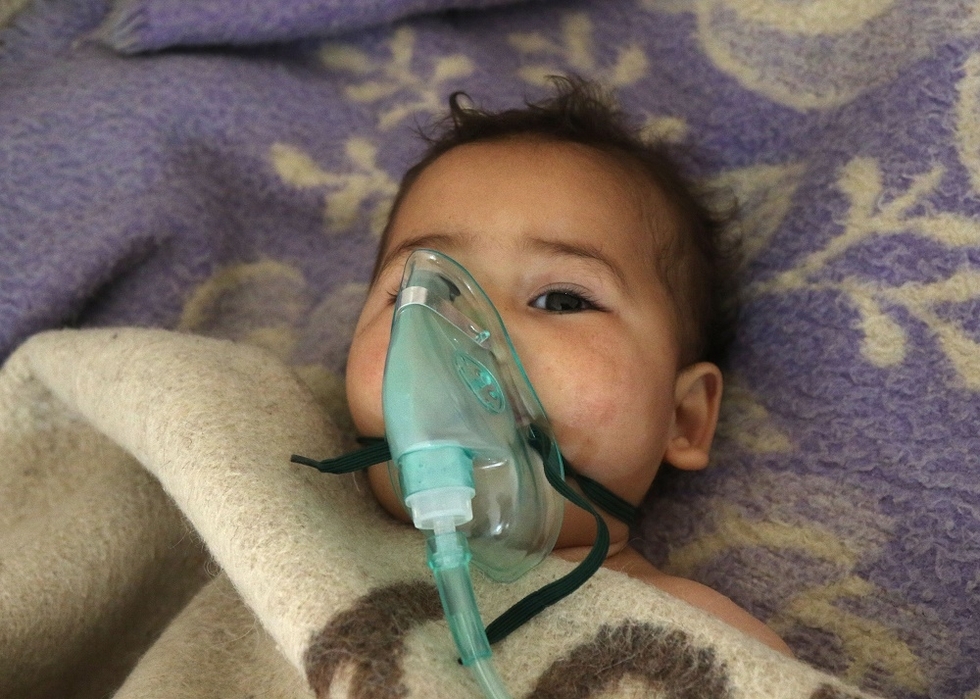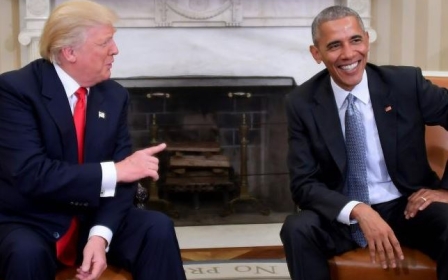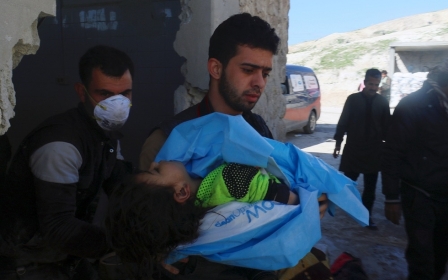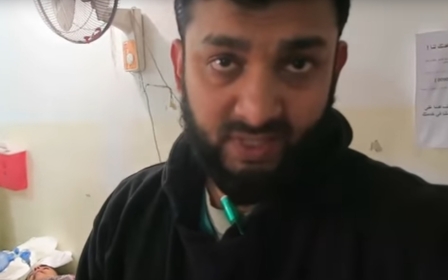Assad chemical attack: Perfectly timed to extract further concessions from the West

Tuesday's chemical attack by the Syrian regime is perfectly timed to highlight the impotence and weakness of the West and place further pressure on it to restore ties with Damascus.
Early on Tuesday, warplanes carried out air strikes on the town of Khan Sheikhoun in Idlib province using sarin nerve gas. Later, they fired rockets at local clinics treating the wounded, killing many more.
The regime is further raising the stakes and the political cost for the West of not cooperating
At the time of writing, at least 72 Syrians are believed to have died.
The attack occurred on the same day that the European Union was hosting in Brussels a large international funding conference for Syria – which was initially supposed to focus on reconstruction but was scaled down – and while the US administration sends mixed signals with regards to its policy toward Syrian President Bashar al-Assad.
In other words, while the regime is sensing a gradual shift toward a restoration of ties, it knows the West is not there yet.
Thus, rather than making concessions or political gestures, the regime is further raising the stakes and the political cost for the West of not cooperating.
The humiliated West
Assad knows that he has nothing to lose from carrying out the strikes. The EU is not yet ready to resume its ties anyway, while the United States is still hesitant. As to the outcry over the attack, at most, it will last a few weeks, as has been the case since 2011.
Any restoration of ties and funding will not have much to do with the well-being of Syrians, but rather with the political credibility of the West
By committing large-scale massacres, the regime shows to the world the West’s impotence and weakness, delegitimising all the political values it claims to be standing for. “You do not want to restore ties? I will kill more civilians and show the world how impotent and cowardly you are.”
The more the attack is publicised, the more the West is humiliated – hence the timing of the attack during the Brussels conference.
As soon as the outcry fades, pro-regime analysts, bureaucrats and politicians in the EU and US will complete the regime’s job and push for restoring ties and accepting the regime's blackmail “for the sake of protecting Syrian civilians and improving their livelihood".
Since former US President Barack Obama’s green light in September 2013, Assad knows that a large-scale attack against its civilians is a short-term public relations liability, but a long-term political asset.
In the next few months, as long as the West is not ready to acquiesce to the regime's demands, expect further spectacular massacres.
This piece originally ran on The Syria Report.
- Jihad Yazigi is a journalist based in Beirut. He is the editor-in-chief of The Syria Report, an online economic bulletin specialised on the Syrian economy that he founded in 2001.
The views expressed in this article belong to the author and do not necessarily reflect the editorial policy of Middle East Eye.
Photo: A Syrian child receives treatment at a small hospital in the town of Maaret al-Noman following a suspected toxic gas attack in Khan Sheikhun, a nearby rebel-held town in Syria’s northwestern Idlib province, on 4 April 2017 (AFP)
This article is available in French on Middle East Eye French edition.
New MEE newsletter: Jerusalem Dispatch
Sign up to get the latest insights and analysis on Israel-Palestine, alongside Turkey Unpacked and other MEE newsletters
Middle East Eye delivers independent and unrivalled coverage and analysis of the Middle East, North Africa and beyond. To learn more about republishing this content and the associated fees, please fill out this form. More about MEE can be found here.






